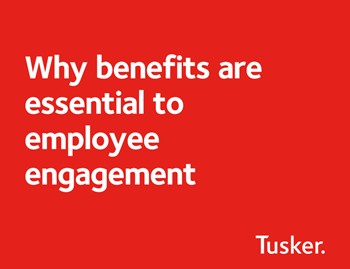Employee assistance programs (EAPs) are designed to help workers deal with a range of issues that could be affecting their performance in a negative way. They can assist with problems like alcohol or substance abuse, family problems, mental health issues and even financial aspects, all of which can have a severe effect on the productivity of your workforce.
EAPs can also help identify those who are suffering from work-related stress, depression or anxiety, which costs the US over $42 billion a year. These illnesses also result in 4.6 working days lost per month, on average, meaning a cost to businesses in terms of productivity and profit.
More companies are seeing the benefits of EAPs - over 97 per cent of organizations with more than 5,000 employees now have them in place - as they help ensure employees have access to trained professionals in order to avoid problems getting worse. However, EAPs do also come at a cost to the business, so it is worth considering whether the benefits balance with the money being spent, especially if you are a small company.
Around the clock access
Implementing an EAP doesn't necessarily mean that time will be taken out of a work day in order to get help. Most programs offer employees around the clock access to trained professionals, which means they can call or arrange an appointment at a time that suits them.
Not only can this mean that productivity isn't lost during a work day, it also ensures that workers don't worry or feel stressed about the prospect of having to utilize the program during their working hours. This can help with any issues they are having as they know that assistance is always there, so they can call when they need to and when it suits them.
Reduce overall stress
Having access to an EAP can mean that employees are around 3.5 times more likely to be able to cope with the daily demands of their job, which reduces the number of days taken off to deal with their problem and results in a happier workforce. On top of this, EAPs have been found to result in better relationships with coworkers, which can improve collaboration and lead to a better working environment.
All of this can ensure that people are happier in their jobs, better able to do them to a high standard and are as productive as possible. When you combine this with a harmonious atmosphere due to improved colleague relationships, EAPs can become an important part of creating a better workplace culture.
Employer support
Not only do EAPs mean that employees have access to professional guidance, they provide the employer with the support they need. Dealing with a complex situation involving a worker can be difficult for a company if there is no one trained to deal with the issue at hand.
EAP counsellors can be available to help an employee but also put a plan in place for them and the company to help them through the problems. This means that you are able to actively help improve a member of staff’s performance while still providing aid, potentially meaning you don't lose a good worker.
Many EAPs also provide some level of training to make it easier for companies to identify those who may be struggling so that help can be offered before their issues get bad enough to really impact their work.
Access the latest business knowledge in HR
Get Access






Comments
Join the conversation...